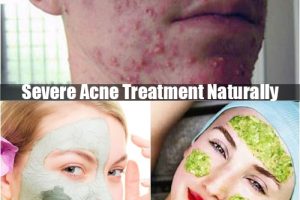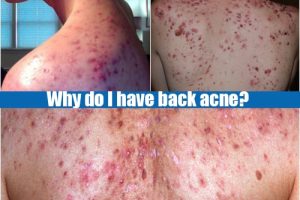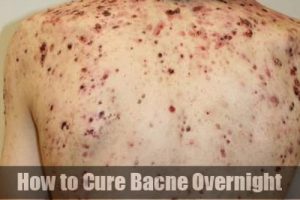Why do I have cystic acne?

Cystic Acne Causes – Why do I have cystic acne?
There are a number of cystic acne causes, including overactive glands and excessive hormones. Of course, genetics also play a role in whether or not a person is prone to severe cystic acne or not. Here, the causes of cystic acne will be provided; some of the ways in which the condition can be effectively treated.
What are the Causes of Cystic Acne?
The cause of cystic acne outbreaks happens when the pores of your skin become blocked by dirt and oil on the skin. The condition is made worse by the bacteria that get trapped in the blocked pore. As the infection grows, cysts or nodules can form deep under the skin presenting itself as acne cystic.
Overactive Glands
Overactive glands — specifically, the sebaceous glands — are a main contributor in causing cystic acne. These glands cause a build-up in various oils, which proceed to clog the pores of patients who are prone to the condition.
Hormones
Hormones are arguably the root-cause of all types of acne, including acne cystic. Testosterone, specifically, is believed to be the hormone responsible for causing severe acne cystic. Accordingly, some female patients may be prescribed oral contraceptives, which reduce testosterone levels.
Genetics
Genetics are another one of the primary cystic acne causes. Often, individuals with acne cystic have family members who also suffered from the condition.
Diet
The effect of diet on the rate of acne cystic in patients is something that is widely debated among individuals in the medical community. Chocolate and salt were previously believed to a cause of acne, but this has been essentially unproven. However, milk is believed to be among the acne cystic causes, due to the fact that it contains high levels of hormones.
Stress
This is another one of the causes of cystic acne that is contested, to an extent. However, more and more doctors and members of the medical establishment seem to be citing stress as a cause of the affliction.

Severe Acne Treatment Naturally
How to treat cystic acne?
[amazon box="B01BPCAWK4"]
It’s important that patients seek treatment if they have acne cystic, because it is a condition that, in almost all cases, will lead to eventual scarring. Fortunately, there are various effective treatments obtainable on the market that helps patients manage the condition.
Topical Solutions
This is often the starting point in treatment for many patients. Topical solutions, such as retinal, are particularly beneficial in managing one of the main cystic acne causes (overactive glands). However, in many cases, patients and dermatologists will need to explore other treatment options.
[amazon box="B001ZSBI8Y"]
Oral Antibiotics
If a round of treatment with topical solutions is unsuccessful for a patient, then oral antibiotics will often be prescribed. In many cases, this will, at the very least, make the condition manageable. Often, these medications will cut the rate of acne in half among those who are treated with them.
[amazon box="B076V2RM46"]
Aggressive Cystic Acne Treatments
If both of the previous treatments are unsuccessful, then other treatments (more aggressive acne cystic treatments) will probably be necessary. These treatments may include lasers, or even accutane.
[amazon box="B006KL4TYG"]
What’s good for cystic acne?
Below are several home based cystic acne treatment options that you can try …
Apple Cider Vinegar
Drink a Mix of 2 tablespoons apple cider vinegar with 8-10 oz. twice per day.
After washing face with neutral pH soap, dab apple cider vinegar on affected areas and allow drying. Do this once each morning and evening. It is the anti-bacterial properties of apple cider vinegar which, as a acne cystic treatment, have helped many control the outbreaks.
Turmeric
The anti-bacterial properties of turmeric have also been known to help reduce the appearance of acne cystic. Try this cystic treatment by mixing the following ingredients below and drink before bedtime.
1 tsp Turmeric
1/4 tsp Cinnamon
1 c Hot Water
1 tsp Honey (to taste)
2-3 tbsp milk (to taste)
Tea Tree Oil
Tea tree oil contains an ingredient called terpinen that has antimicrobial properties. Applying a 5% solution to acne lesions has been a popular acne cystic treatment and has helped many with a reduction of inflamed and non-inflamed acne.
Conclusion
There are five potential cystic acne causes: overactive glands, hormones, genetics, stress, and diet. Patients with this condition need to make an effort to receive treatment before it gets to a point when scarring occurs (and scarring is inevitable is treatment is not sought).






Leave a Reply